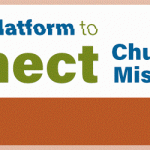 Read David Platt’s open letter here…
Read David Platt’s open letter here…
http://www.imb.org/updates/storyview-3509.aspx#.Ve7BFflViko
But the bottom line is — cutbacks. Brother Platt pointed out that, over the past 5 years, the IMB had spent $210 million dollars more than it had taken in. He emphasized that they just couldn’t go on spending like that. What’s your thinking on this move by the world’s largest missionary-sending agency? After reading the rather lengthy letter, do you have advice you would offer Dr. Platt? If so, click “Comment” after the online version of this item. How would you have done things the same or differently if you were in David Platt’s seat as the new Exec. Director? And here’s a companion question: Could this turn of events indicate that the centralized “salary” model of hiring missionaries doesn’t generate a personal “stake” in each missionary family’s funding? … so maybe the “deputized fundraising” used by faith missions throughout the globe might be a more effective model after all? Or is that conclusion completely irrelevant?












I think that the IMB needs to transition to the faith mission model. This model forces folks to build stronger ties with local churches and should include the requirement that every worker have a “Home Church/Sending Church” that carries the bulk of their support. The fear in the movement I was part of was that the missionaries who are good or charismatic speakers would raise their funds and those that don’t communicate as well wouldn’t. What the result has been is that those that are truly called are supported, those that aren’t move on to other ministries they are better suited for.
I’ve been blessed to have known many IMB missionaries serving in Europe since I began in Spain in 1984. My observation has always been that they receive much more monthly funds than the average missionary. Much more than is considered necessary by most other missions. I wonder if a 20% or 30% general reduction or a field by field necessary support reevaluation would help solve the problem without losing so much missionary presence.
I agree with David Nelson’s thought, not only for IMB, but another agency with which my son is “struggling”to reach the goal! Then, when they were within “breathing distance”, the agency added a new “cost of living” increase of $700! However, nothing negative should ever be said of the work of the IMB! There influence has circled the globe a “thousand” times, to the glory of God! Yet, there seems to be a greater need among the “younger” generations to take ownership of the ministry to which they commit. They want to be closer to the “action” of the missionary—to know more directly that this is what I am supporting: “This is our ministry!” This is good for the development of a Personal/Relational level of Member Care, advocated in the book, SERVING AS SENDERS~TODAY. eri.org or Kindle.
I agree with David and Neal. We’ve been on the field for fifteen years in West Africa. I adore my mission colegues from IMB and respect the work they do. However, they seem to lead luxurious lifestyles compared with most of the mission community here. I understand that they have made tremendous sacrifices to be here, but I do see many ways they can greatly reduce their cost of living without moving to a bush lifestyle.
I understand that God wants to bless his children, but those blessing can still be had without always needing the newest, best, and expensive living conditions. Our famiy lives quite comfortably (even by Western standards) on less than half the support of our IMB friends.
Dear David, I am a missionary from Globe Mission in Germany. The people who run this organization rasie their own funds plus also receive 10% from what ever each missionary gets each month. All funds go through them before going to the missionary. If you ran your missions with this type of model you would have a plus and not a negative in funds. Many blessings, Jeff Mills, evangelist to Guatemala.